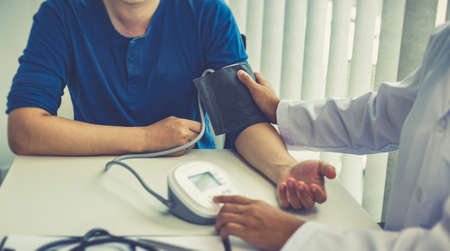The Role of GPs as Gatekeepers in the NHS
Within the United Kingdom’s healthcare system, General Practitioners (GPs) occupy a pivotal and distinctive position as gatekeepers. As the first point of contact for patients seeking medical attention, GPs serve as the foundation of primary care across the country. This unique role extends beyond simply diagnosing and treating acute illnesses; GPs are entrusted with overseeing the holistic health needs of their patients, including the identification and coordination of rehabilitation services when necessary. In practice, this means that before patients can access specialist or rehabilitation services—such as physiotherapy, occupational therapy, or community-based support—they typically require an initial assessment and referral from their GP. This system ensures that resources are allocated appropriately, supports continuity of care, and helps avoid unnecessary use of specialist services. By acting as both advocates and coordinators, GPs help guide patients through the often complex landscape of NHS rehabilitation pathways, ensuring timely intervention and tailored support according to individual needs.
2. Initial Assessment of Rehabilitation Needs
In the UK, General Practitioners (GPs) play a pivotal role as gatekeepers to rehabilitation services. During consultations, GPs are often the first point of contact for patients experiencing new or worsening physical, cognitive, or psychosocial challenges. The initial assessment of rehabilitation needs is a nuanced process that relies on both clinical expertise and established protocols tailored to the NHS framework.
GPs begin by exploring the patients presenting symptoms, medical history, and functional limitations. This conversation allows for an understanding of how the patient’s condition affects their daily living and overall wellbeing. Recognising subtle signs that indicate a need for rehabilitation—such as reduced mobility, difficulty with self-care, or impaired communication—is crucial at this stage.
To ensure comprehensive evaluation, GPs commonly utilise specific tools and guidelines designed to standardise assessments and facilitate appropriate referrals. These may include:
| Tool/Guideline | Description | Common Use Case |
|---|---|---|
| NHS England Rehabilitation Prescription | A structured form capturing rehabilitation needs post-illness or injury | Stroke, major trauma, or neurological conditions |
| Barthel Index | Measures performance in activities of daily living (ADLs) | Elderly patients, those with chronic disabilities |
| WHO ICF Framework | A biopsychosocial model assessing function and participation | Complex cases requiring multidisciplinary input |
| NICE Guidelines (CG162, CG179 etc.) | Evidence-based recommendations for specific conditions | Stroke, falls, multiple sclerosis, and more |
Through careful application of these tools and alignment with national guidelines, GPs systematically identify patients who would benefit most from rehabilitation interventions. This approach ensures that care is both patient-centred and efficient within the wider NHS system.
![]()
3. Referral Pathways and Collaboration with Specialist Services
In the UK, GPs play a pivotal role in guiding patients through the healthcare system, especially when it comes to accessing rehabilitation services. When a patient presents with a condition that may benefit from rehabilitation—be it following surgery, injury, or the management of long-term illness—the GP acts as the primary assessor and gatekeeper. The referral pathway typically begins with a comprehensive assessment during the GP consultation, where physical, psychological, and social factors are considered to determine the most suitable course of action.
Once a need for further rehabilitation is identified, GPs initiate referrals to appropriate specialist services. These may include physiotherapy, occupational therapy, speech and language therapy, or community-based rehabilitation teams. The NHS system often requires GPs to use specific referral forms or electronic systems to ensure that information is shared efficiently and securely with allied health professionals. In some regions, direct access pathways are available for certain conditions, allowing patients to self-refer to services like physiotherapy; however, the GP remains central in coordinating care for more complex needs.
Collaboration with multidisciplinary teams is essential for optimal patient outcomes. GPs routinely work alongside consultants, therapists, nurses, and social care professionals to develop and monitor personalised rehabilitation plans. Regular communication—whether through case conferences, shared electronic records, or multidisciplinary meetings—ensures that everyone involved has a clear understanding of the patient’s progress and goals.
This collaborative approach not only streamlines access to specialist interventions but also supports holistic care. By integrating medical management with functional and psychosocial support, GPs help bridge gaps between primary and secondary care settings. Such coordination is particularly important for patients with complex or long-term conditions who may require input from several different specialists over time.
Ultimately, effective referral pathways and strong collaboration underpin the success of rehabilitation in the UK healthcare system. Through their gatekeeping role, GPs ensure that patients receive timely, appropriate support tailored to their individual needs—empowering them on their journey towards recovery and improved quality of life.
4. Addressing Barriers to Accessing Rehabilitation Support
Within the UK healthcare system, both patients and GPs frequently encounter barriers when seeking timely and appropriate rehabilitation support. Understanding these challenges is crucial for improving outcomes and ensuring that individuals receive the care they need at the right time.
Common Barriers in the Pathway to Rehabilitation
There are several hurdles that can delay or complicate access to rehab services. The following table outlines some of the most prevalent challenges faced by both patients and GPs:
| Barrier | Impact on Patients | Impact on GPs |
|---|---|---|
| Waiting Times | Delayed recovery, increased anxiety, potential worsening of condition | Pressure to manage symptoms longer, limited interim options for care |
| Resource Allocation | Uneven access across regions, potential inequities in service provision | Difficulties referring patients, frustration over limited local resources |
| Patient Awareness | Lack of understanding about available rehab options, underutilisation of services | Extra time required to educate patients, risk of missed referrals due to misconceptions |
| Administrative Burden | Bureaucratic delays in accessing support, confusion around eligibility criteria | Increased paperwork, less time for direct patient care |
| Cultural and Language Differences | Poor engagement with rehab, misunderstanding of recommendations or processes | Challenges in communication, need for specialist interpretation or advocacy services |
Tackling These Challenges Together
To address these barriers effectively, a collaborative approach is needed. Patients benefit from clear guidance and proactive education about their rehabilitation journey. GPs play a pivotal role as advocates, helping patients navigate the system while working with local providers to ensure equitable resource allocation. Efforts to streamline referral pathways and reduce administrative burdens can also make a significant difference.
The Role of Patient-Centred Communication
Effective communication is at the heart of overcoming access barriers. By taking time to listen to each patients concerns and expectations, GPs can tailor advice and signposting, making sure no one falls through the cracks. Supporting materials in accessible formats and multiple languages are essential for engaging diverse communities across the UK.
5. Patient-Centred Approaches in Rehabilitation Assessment
Within the UK’s primary care framework, General Practitioners (GPs) play a pivotal role in ensuring that rehabilitation assessments are firmly rooted in patient-centred care. The ethos of patient-centredness means GPs go beyond clinical observations, actively involving patients in every stage of the decision-making process. This collaborative approach not only respects each individual’s autonomy but also recognises their unique circumstances, goals, and preferences.
Shared Decision-Making
GPs facilitate shared decision-making by engaging patients in open, two-way conversations about their rehabilitation options. Patients are encouraged to express their aspirations, concerns, and any barriers they anticipate—whether related to physical limitations, mental health considerations, or social responsibilities. By presenting evidence-based information in an accessible manner and discussing likely outcomes, GPs empower patients to make informed choices about their care pathway.
Tailoring Rehabilitation Plans
No two patients are the same; therefore, GPs strive to tailor rehabilitation plans according to individual needs. This involves considering a range of factors such as age, comorbidities, lifestyle, employment status, family support systems, and cultural background. For example, a working-age adult recovering from injury may require a different approach compared to an elderly patient with complex health needs. GPs work closely with multidisciplinary teams—including physiotherapists, occupational therapists, and social workers—to coordinate bespoke interventions that align with each patient’s daily routine and personal objectives.
Respecting Social Circumstances
Another key aspect is acknowledging the impact of social determinants on rehabilitation outcomes. GPs take into account factors like housing conditions, access to community resources, transport availability, and financial challenges. By identifying potential obstacles early on and signposting patients to appropriate support services—such as local charities or council-funded programmes—GPs help ensure that rehabilitation remains realistic and sustainable within the context of each person’s life.
Ultimately, the commitment of GPs to patient-centred approaches ensures that rehabilitation assessment is not a one-size-fits-all process. Instead, it becomes a dynamic partnership where clinical expertise meets individual lived experience, resulting in more meaningful engagement and improved long-term outcomes for people across the UK.
6. Future Directions and Innovations in Rehabilitation Assessment
As the landscape of healthcare in the UK continues to evolve, so too does the role of GPs in identifying and managing rehabilitation needs. Several emerging trends and innovations are poised to significantly shape how GPs approach their gatekeeping responsibilities, ultimately enhancing patient outcomes and streamlining access to rehabilitation services.
Embracing Digital Health Solutions
One of the most transformative developments is the integration of digital health technologies into primary care. Electronic health records (EHRs) with embedded clinical decision support tools can prompt GPs to consider rehabilitation options based on diagnosis, functional assessments, and patient-reported outcomes. Remote monitoring devices and mobile apps now allow patients to track their recovery progress, enabling GPs to make more informed decisions about when to refer for specialist input or adjust care plans. Virtual consultations have also expanded access, particularly for individuals in rural or underserved areas.
Innovative Assessment Tools
Emerging assessment frameworks—such as those incorporating artificial intelligence (AI)—are set to provide GPs with more nuanced insights into a patient’s rehab needs. AI-driven algorithms can analyse data from multiple sources, including medical history, social determinants of health, and real-time functional assessments, to flag patients who may benefit from early intervention. These tools promise not only greater accuracy but also a reduction in administrative burden for busy GP practices.
Policy Developments Supporting Change
The NHS Long Term Plan emphasises integrated care systems and multidisciplinary collaboration, which directly supports improved rehabilitation pathways. New policy initiatives are encouraging closer working relationships between primary care networks, community rehab teams, and social care providers. These collaborations enable faster identification of rehab needs and smoother transitions across different levels of care. Additionally, funding for training programmes aims to upskill GPs in musculoskeletal medicine, mental health, and complex disability management—areas where early rehab assessment is crucial.
Patient-Centred Innovations
Future approaches will likely place an even stronger emphasis on personalised care planning. Shared decision-making models empower patients to take an active role in defining their rehabilitation goals and preferences. Digital platforms that facilitate secure communication between patients, GPs, and allied health professionals ensure that care remains coordinated and responsive.
Together, these advances signal a future where GPs are better equipped than ever before to act as effective gatekeepers—identifying rehab needs earlier, facilitating timely interventions, and supporting holistic recovery journeys for patients across the UK.


